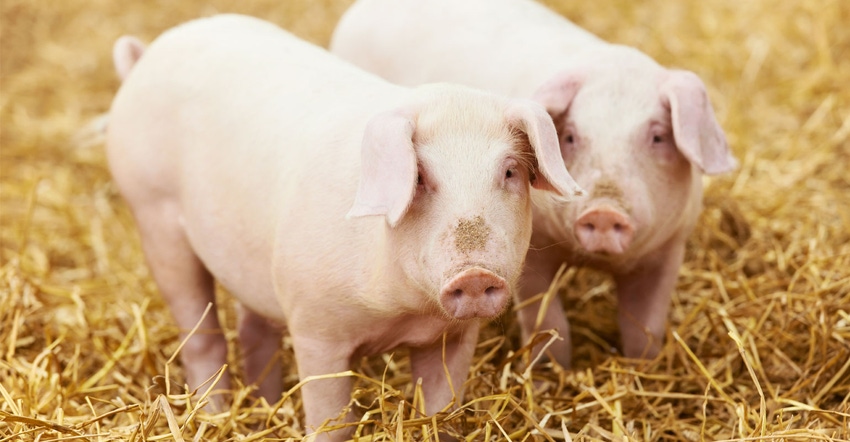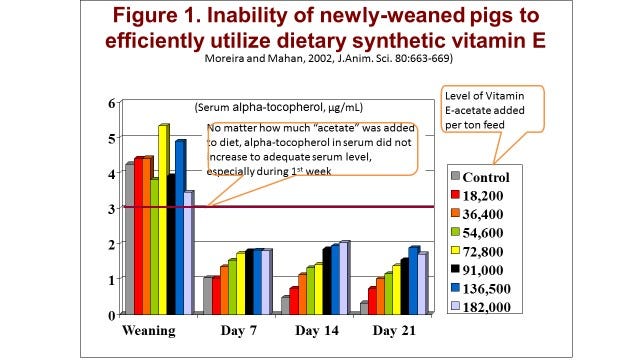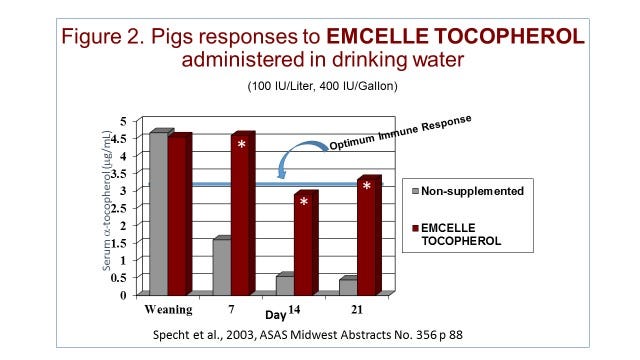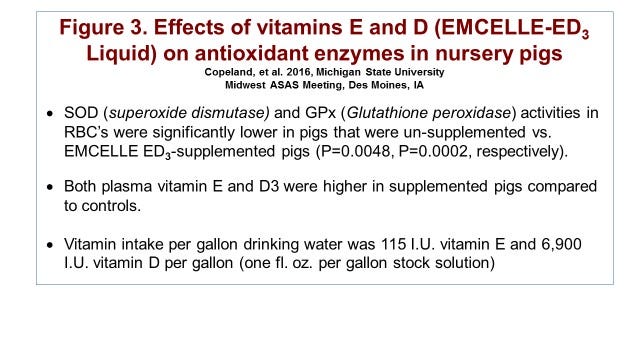Reduce farrowing time with pre-partum injection of fat-soluble vitamins
May 1, 2018

Sponsored Content
Pre-farrowing injection reduces farrowing time and stillbirths in sows.
Recent research at two universities has shown that injecting sows with vitamins A, D and E (5 mL VITAL E®-Repro) one week prior to farrowing dramatically reduced delivery time. In a North Carolina State field demonstration, 87 control sows were compared to 92 sows injected with VITAL E®-Repro one week pre-farrowing. Average farrowing time was reduced from 185 minutes to 139 minutes (-25%) and average number of stillborn pigs across all parities was reduced 6.5%. When P-6 sows were evaluated, injected P-6 sows had 23% fewer stillborn pigs compared to non-injected P-6 sows (1.31 versus 1.71). In the Michigan State experiment, average delivery time per pig was reduced by 23% (16.38 versus 21.26 minutes per pig).
In another North Carolina field demonstration, percentage of sows requiring birthing assistance was reduced from 19% in non-injected sows (n = 115) to 9.5% in VITAL E-Repro injected sows (n = 222).
Levels of fat-soluble vitamins in colostrum are dramatically increased due to the pre-partum injection of vitamins E, A and D.
Pre-breeding injection reduces variation in embryo size.
Injection of vitamins A, D and E (5 mL VITAL E-Repro) one week pre-breeding (at weaning) may reduce variation in embryo size, leading to more uniform fetal development during pregnancy. Results from a regional study in the southeast, indicated that P-1 and P-2 sows benefited more from an injection of vitamin A palmitate than older sows.
The approximate cost for the two 5 mL injections of VITAL E-Repro is $2 per sow.
Enhances vitamin status in nursery pigs.
Water supplementation of water-soluble micellized vitamin E and vitamin D (EMCELLE® E-D3 Liquid) is an excellent method to prevent post-weaning depression of these critically important vitamins.
Vitamin E status in nursery pigs diminishes dramatically after weaning regardless of the vitamin E level in the nursery diet. Ohio State research as well as other studies have shown that newly weaned pigs cannot efficiently utilize stabilized feed-source vitamin E ester (Figure 1), however they are able to utilize d-alpha-tocopherol — the same form of vitamin E found in milk and grass (Figure 2).

Administering EMCELLE E-D3 Liquid in drinking water for two to three weeks post-weaning prevents vitamin E status from tumbling after weaning and also enhances vitamin D status of the post-weaned pig. Recent Michigan State research has shown that nursery pigs administered EMCELLE E-D3 Liquid had lower oxidative stress compared to non-supplemented pigs (Figure 3).

For more information, contact Rob Stuart. Stuart Products Inc.: 800-747-4538.
E-mail: [email protected]
About the Author(s)
You May Also Like



